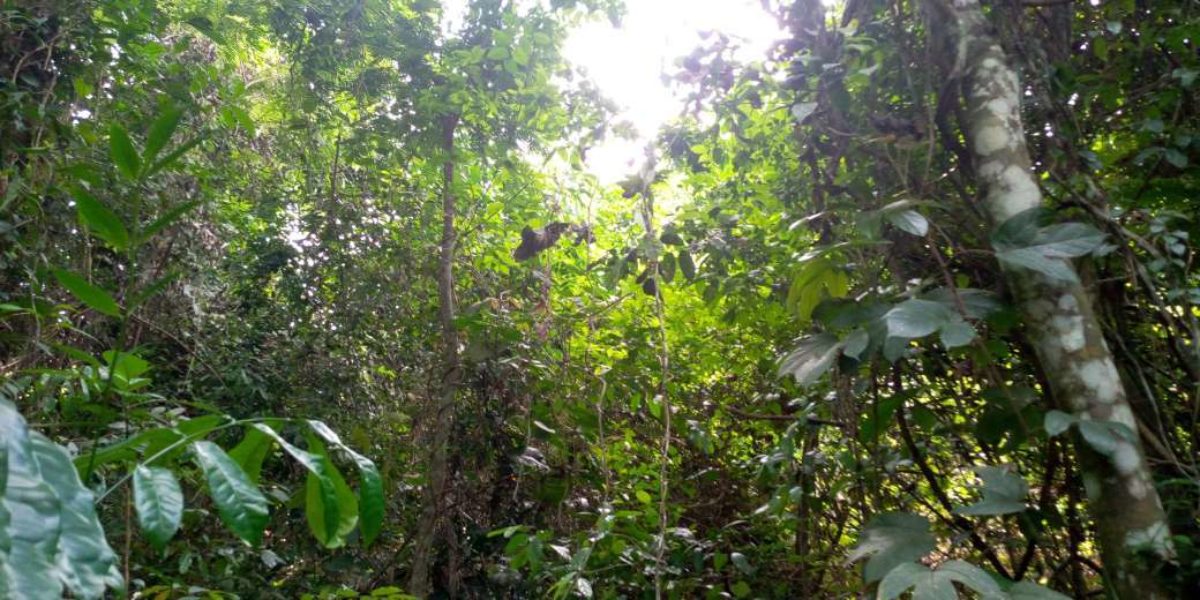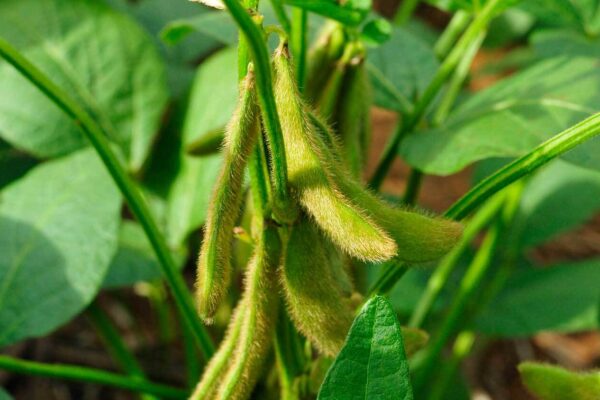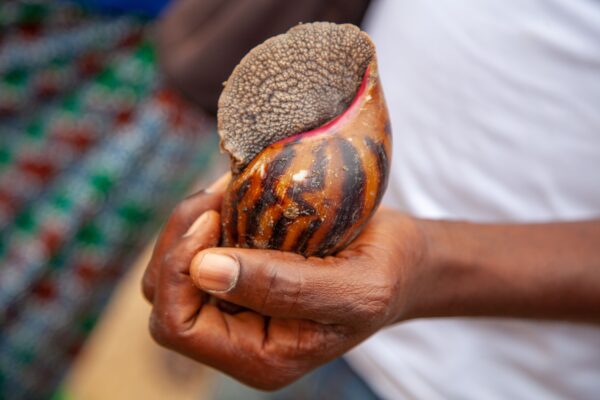Since August 2017, Mondelez has been working with Earthworm Foundation to identify forests in its supply chain in Ivory Coast and develop a land-use plan to reforest and preserve these forests. After having done this in Méagui, Nawa region in 2018, we are doing the same in Gabiadji since October 2019.
The long-term goals of this work are to protect forest relics and natural ecosystems in Mondelez’s supply chain, and contribute to the Ivorian government’s efforts to regenerate forest cover; mitigating the impacts of climate change in the process. The land-use plan is being developed using the High Carbon Stock (HCS) Approach, with a focus on compensating smallholders for forests they choose to conserve.
“The HCS Approach is an innovative method capable of conserving and restoring forests. Based on new earth observation technologies (Geographic Information Systems) and a participative approach, it makes it easy for communities to be involved in planning how to use their land. The approach also makes it possible to save important forest relics, and restore areas that are badly degraded that rural communities want to conserve. Anything that can contribute to the sustainability of cocoa,” said Ibrahima Fofana, project manager at Earthworm Foundation.
To carry out the work, Earthworm Foundation deployed a team of 10 people to the field between February and March 2020. This team included our field staff, as well as other experts from fields such as geography, botany, agronomy and social sciences.
"The work involves visiting a number of potential forest sites that have been selected and integrated into a GPS (Global Positioning System). At these sites, we do a floristic inventory of the species found there. Once this is done, we measure the circumference of the identified trees. This data will make it possible to assess the richness of flora and highlight species with special statuses – endemic, threatened, endangered, etc. One of the essential things is to assess the real carbon stock of these forests; to know how they contribute to maintaining floral biodiversity and sequestration of carbon, which is essential to mitigate the effects of climate change,” explains Dr. Yao N'Guessan Olivier, a botanist and lecturer at the University Centre for Applied Research in Remote Sensing (CURAT in French), a technical partner of Earthworm Foundation.
So far, the team is at the data mining stage. The final results will be shared with actors in Gabiadji during a feedback and validation workshop.

Involving smallholders for effective forest conservation
“Since smallholders own these forested lands, it is important to discuss with them to see what can be done for them. To see if they agree to keep the forests standing and produce cocoa that contributes to forest conservation rather than destruction. In doing so, smallholders are the winners. Because if these forests are kept, this will not only contribute to the conservation of biodiversity, but also promote a microclimate favouring agriculture,” Dr. Yao N'Guessan Olivier said.
However, the success of such an approach requires building trust with smallholders. It also requires showing them what is in it for them.
"Farmers are aware of the effects of climate change but, at the same time, want to have concrete proposals on how they would benefit from protecting forests," said M. Koffi, president of the management board of ECOGA, a farmer cooperative.
These proposals must be linked to productivity and the improvement of their living conditions, said Mr. Sylla, Director of CASIB, another farmer cooperative in Gabiadji. In the end, it's a question of survival.
"We want to keep our forests. But while we keep them, how do we live?" asked Babo Soro, head of the Gnyti village, located about 10 kilometres north of Gabiagui.
Faced with this situation, Earthworm Foundation is conducting a socio-economic investigation to understand how best to help farmers if they were to conserve forests in their lands. According to Stéphane Kouakou, supervisor at Earthworm Foundation, “the investigation aims to understand the socio-economic situation of actors who directly or indirectly deforest and suffer the negative effects of it, as well as their perception of the environment. This will lead to solutions to engage them in conserving remaining forests, reforesting and agroforestry. This approach not only builds trust with the community but is also important in gathering reliable information."


